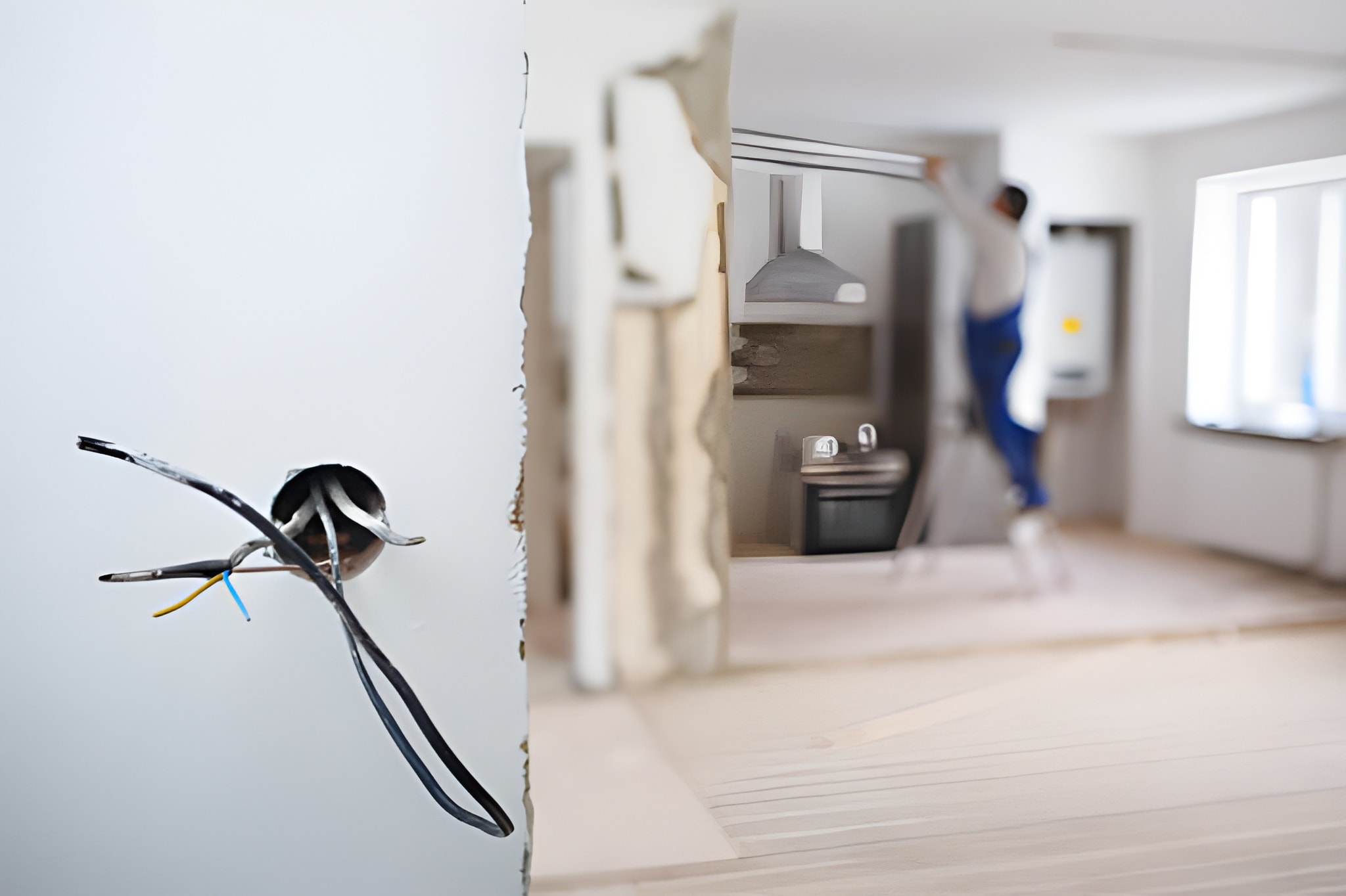House Rewiring in Snohomish, WA
House Rewiring in Snohomish, WA
A complete home rewiring is one of the most important investments you can make for safety, reliability, and future-proofing in Snohomish, WA homes. Whether your home still has knob-and-tube, aluminum wiring, or repeatedly trips circuits, whole‑home rewiring eliminates fire hazards, brings your electrical system up to current code, and provides the capacity needed for modern appliances, EV chargers, heat pumps, and smart-home devices common in the region.
Why Rewire Your Home in Snohomish, WA
Snohomish’s mix of older neighborhoods and growing demand for electrified systems creates specific reasons homeowners pursue rewiring:
- Aging wiring in early- to mid-20th century homes that was never designed for today’s loads
- Presence of knob-and-tube or early aluminum wiring known to pose safety risks
- Frequent breaker trips or unexplained outages as households add appliances and EVs
- Upgrading to heat pumps or EV chargers that require dedicated circuits and higher service capacity
- Moisture and seasonal dampness in the Pacific Northwest that can accelerate degradation of connections and insulation
Common Signs and Wiring Types That Require Replacement
Watch for these clear indicators that a full or partial rewire is needed:
- Persistent flickering lights, warm outlet covers, or outlets that don’t work
- Discolored or charred receptacles and outlets
- Knob-and-tube systems, cloth-insulated wires, or visible aluminum wiring
- Old fuse-based electrical panels, overloaded breaker boxes, or no grounding
- Smoke detectors that aren’t hardwired and interconnected per modern code
Scope of Work for Whole‑Home Rewiring
A professional whole‑home rewire typically includes the following sequence and deliverables:
- Comprehensive electrical assessment and load calculation to determine new service requirements
- Removal of obsolete wiring (knob-and-tube, cloth, unsafe aluminum) and replacement with copper conductors
- Installation of new branch circuits sized for kitchens, laundry, HVAC, EV charging, and dedicated appliance loads
- Replacement or upgrade of the main service panel and meter if required (commonly to 200 amp in modern upgrades)
- Installation of modern protective devices: AFCI (arc-fault) and GFCI (ground-fault) protection, smoke/CO detector interconnects
- Proper grounding and bonding of the system to meet code
- Labeling of circuits and a final electrical testing regimen
Safety, Code Compliance, Permits, and Inspections in Snohomish County
Whole‑home rewires must comply with the National Electrical Code (NEC) and Washington State and Snohomish County amendments. Key points to expect:
- Permits are required for full rewires; work is subject to inspections by local building officials
- All wiring and devices must meet NEC requirements for AFCI, GFCI, grounding, and smoke detector interconnection
- Licensed electricians will coordinate permits and inspections, provide documentation, and ensure the installation passes all municipal checkpoints
- Proper permitting and inspection help with insurance compliance and resale disclosures
Materials and Modern Wiring Standards
Modern rewires use materials and practices that increase safety and longevity:
- Copper conductors are standard for most circuits due to reliability and lower resistance
- Common branch-circuit sizes: 14‑2 for lighting, 12‑2 for general outlets, 10‑3 or larger for ranges and dryers, and dedicated circuits sized for EV chargers or HVAC equipment
- AFCI protection for living areas, GFCI protection for kitchens, baths, garages, and outdoor circuits
- Properly rated breakers, tamper-resistant outlets, and smoke/CO alarms hardwired and interconnected
- Modern conduit, boxes, connectors, and labels for easier future maintenance
Expected Timeline and How Disruption is Minimized
Typical timelines vary by home size, condition, and complexity:
- Initial inspection and load study: 1 day
- Planning and permit application: variable (permits processed by Snohomish County; timing depends on workload)
- Rewiring work for an average single-family home: generally 3–7 business days of active work; larger or historic homes can take longer
- Final inspections and testing: 1 day
To minimize disruption during the project, best practices include:
- Phased work to keep selected circuits live for essential use where possible
- Dust and floor protection: drop cloths, floor runners, sealed containment around work areas
- Nightly cleanup and secure locking of work areas
- Clear labeling of temporary power and restored circuits
- Preserving original trim and finishes where possible; technicians can fish wiring to avoid excessive demolition in many areas
Cost Considerations and Financing Options
Cost is determined by several factors:
- Home size and number of circuits required
- Accessibility (finished walls vs. open attic/basement work)
- Need for service panel upgrades and meter work
- Removal of hazardous materials and disposal requirements
- Required local permit and inspection fees
Financing options are commonly available through third‑party lenders or in-house payment plans offered by licensed electrical contractors. Typical financing approaches include low‑monthly payment plans, deferred interest programs, and options tied to energy-efficiency upgrades. Homeowners should also check local utility incentives or state programs that may help offset costs for energy-related upgrades like heat pump installations paired with electrical upgrades.
Long‑Term Benefits and Maintenance
A properly executed whole‑home rewire delivers tangible, long-term advantages:
- Significant reduction in fire risk and electrical hazards
- Reliable power for modern appliances, heat pumps, EV chargers, and smart systems
- Increased home resale value and smoother real estate transactions
- Easier future electrical additions because circuits and panels are correctly labeled and sized
After rewiring, routine checks and maintenance help preserve safety:
- Periodic visual inspections of the panel and receptacles
- Testing GFCI and AFCI devices per manufacturer guidance
- Keeping panel access clear and maintaining an updated circuit directory
A whole‑home rewiring is a decisive step toward a safer, more capable electrical system tailored to Snohomish living—accounting for older housing stock, damp-climate effects, and growing electrification trends. With proper permitting, modern materials, and attention to site protection, a full rewire modernizes your home while minimizing disruption and positioning your property for decades of reliable electrical service.

Customer Testimonials
Service Areas



